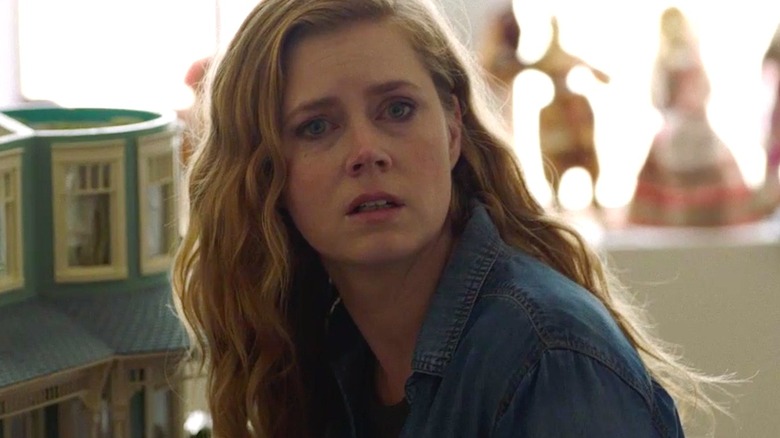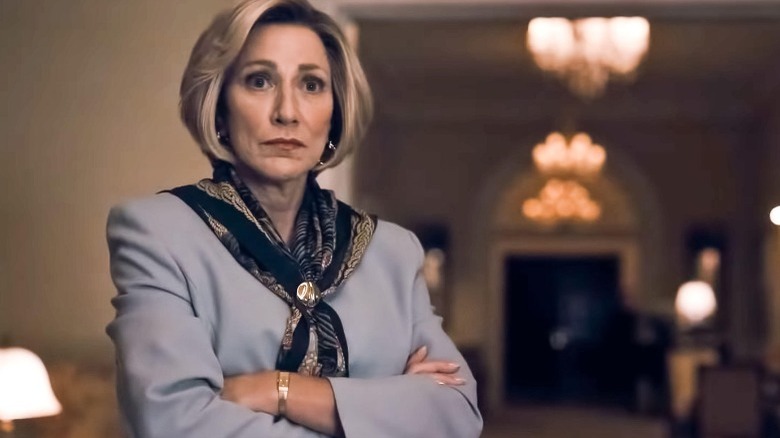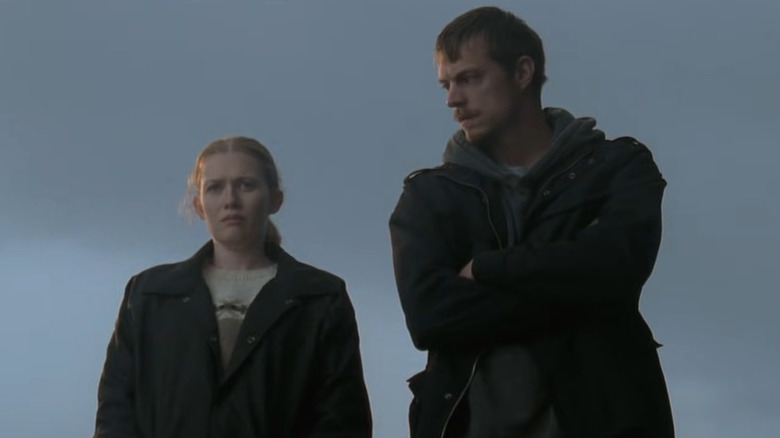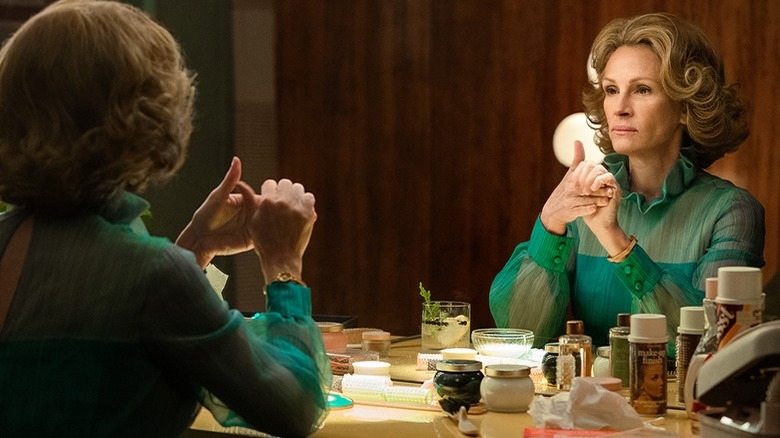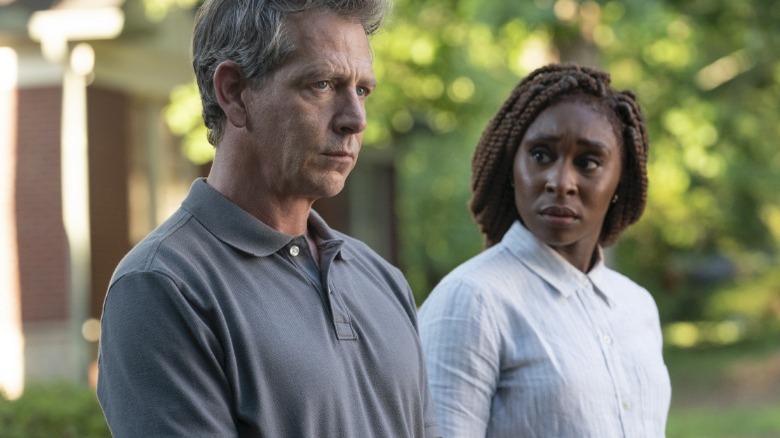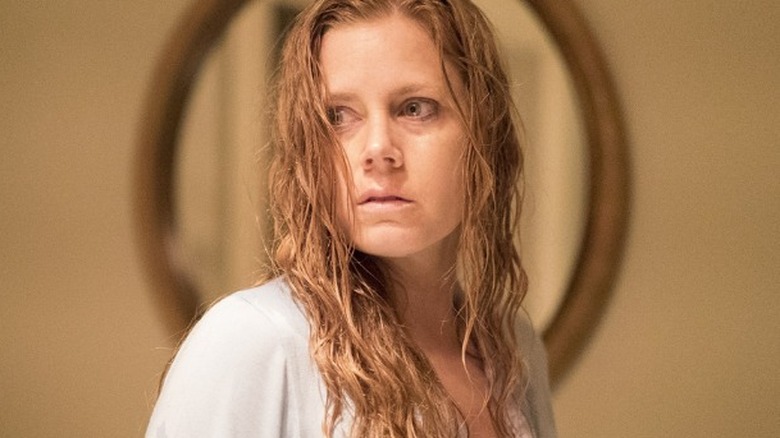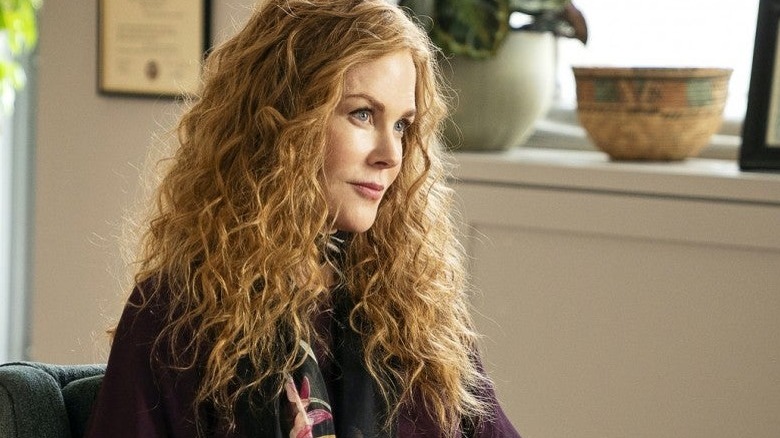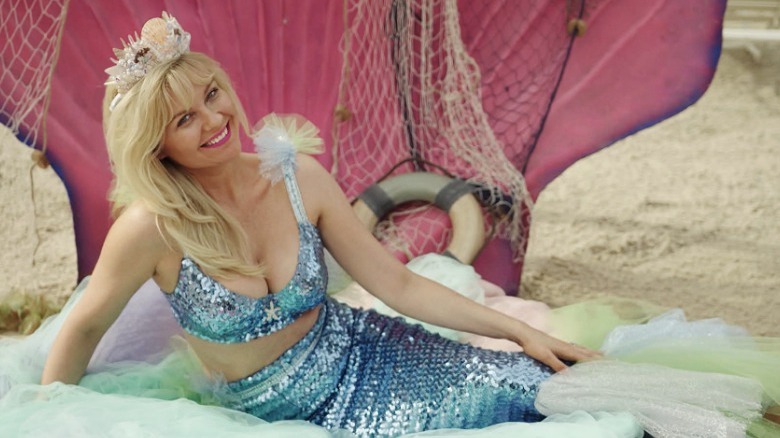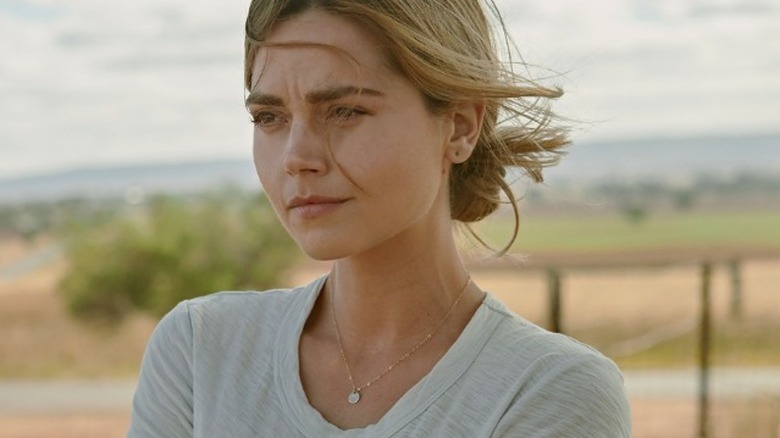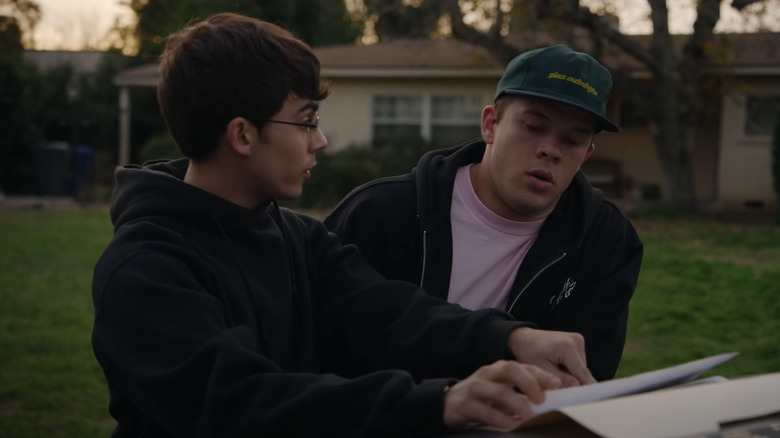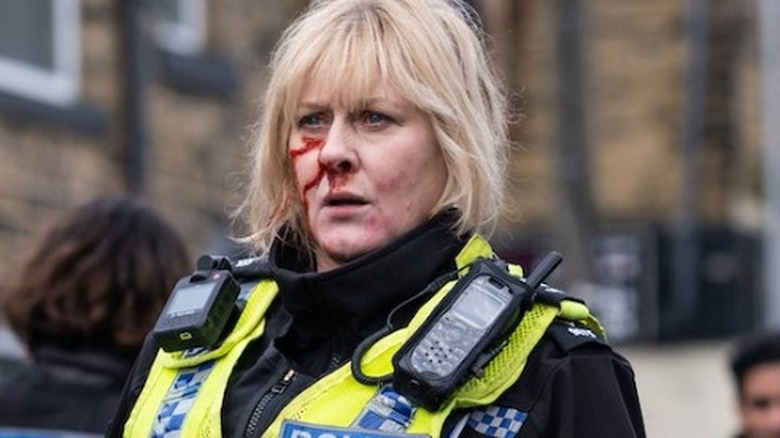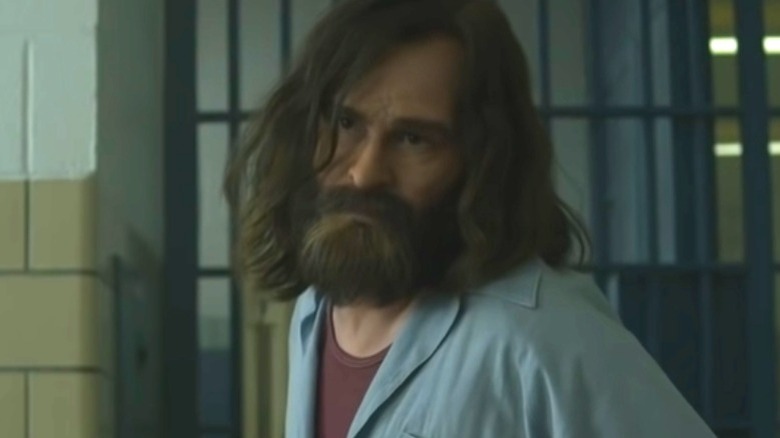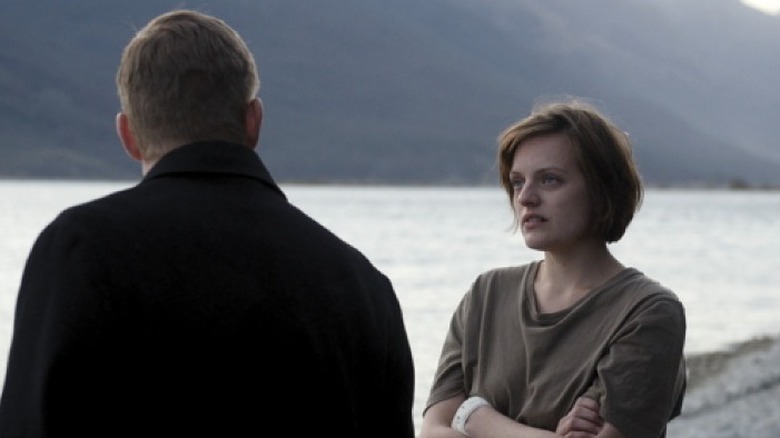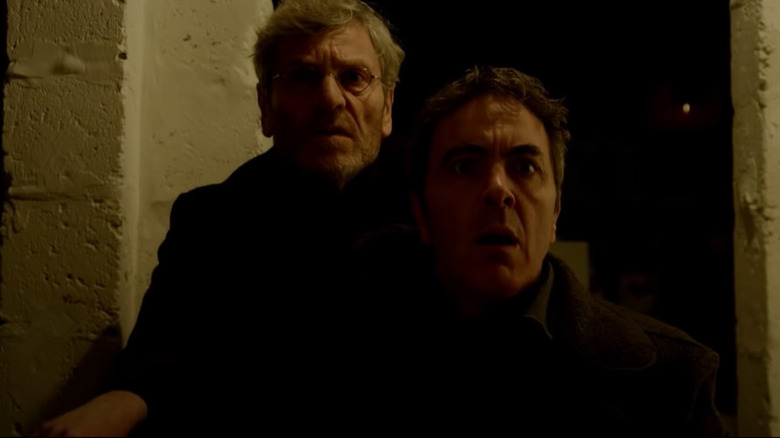Underrated Crime Shows That You Can Binge Right Now
Crime shows can take on many forms. There are procedurals, shows like "Homicide: Life on the Streets" and "Law and Order" (and its endless spin-offs), and then, there are the gritty masterclass dramas, shows like "The Wire" and "The Sopranos." Some favor the process, some the outcome, though all abound with the kind of detached criminal activity audiences fervently eat up. Just look at "Breaking Bad's" 16 Emmy wins.
"NYPD: Blue," "Hill Street Blues," "Criminal Minds," "CSI," and the like endure because they're accessible. They're fun. They're mainstream. Crime dramas like "Better Call Saul" are critically acclaimed and instantly recognizable. However, some crime dramas slip through the cracks. The John and Jane Does of crime shows, the ones that, for one reason or another, never quite found their audience. Whether they were canceled too soon, premiered during "Game of Thrones'" triumphant reign, or featured a misstep or two that alienated huge swaths of their audiences, these shows never got the justice they deserved. To make amends, here are 13 underrated crime dramas viewers can binge now.
Impeachment: American Crime Story
"American Crime Story's" first season remains a high mark in executive producer (and director and sometimes writer) Ryan Murphy's career. Audiences had reached O.J. Simpson saturation, yet years after the trial to end all trials, Murphy somehow found an angle to make it all seem new. Sarah Paulson as Marcia Clark has never been better, and Sterling K. Brown delivers one of the finest performances ever as co-prosecutor Christopher Darden. The second season, detailing the death of Gianni Versace, was just as good.
Then, the third season was long-delayed, and when it finally arrived, airing simultaneously on both Hulu (where it can presently be binged) and FX, it was met with the worst reception, both critically and in terms of viewership, of the bunch. While the third season didn't accomplish the same miraculous feat of reframing history in quite the same way the preceding two did, it was still considerably more delicate than most ripped-from-the-headlines miniseries. Paulson achieves the impossible, rendering the late Linda Tripp a genuinely tragic figure, and Beanie Feldstein is transcendent as Monica Lewinsky. It has intrigue, romance, and disheartening political foresight. For younger viewers, too, it's about as good a glimpse as any into the latter years of the Clinton presidency.
The Killing
"The Killing" has a complicated history, almost all of which can be traced to its controversial (though laudable) decision to span the investigation into the murder of Rosie Larsen (Katie Findlay) across two seasons. Mireille Enos and Joel Kinnaman star as Sarah Linden and Stephen Holden, two detectives responsible for tracking down Rosie's killer. Audiences believed the case had been solved when the first season concluded, though a last-minute twist revealed the true killer remained at large. As detailed by The Week, "The Killing" hemorrhaged viewers, resulting in cancellation after the second season. After Netflix agreed to co-fund a third season, it was renewed, only to once again get canceled. And then, miraculously, Netflix renewed it for a fourth and final season.
Despite its troubled history, "The Killing" remains one of the finest police procedurals in years. It's about as close as any show to capturing the charm of David Lynch's "Twin Peaks." It's moody, gothic, aggressively patient, and eminently watchable. It allows audiences to simmer in the tragedy and death, rendering it more affecting — more heartrending — than most. With the entire show available to stream on Hulu, now is as good a time as any to see the show that wouldn't die.
Gaslit
Watergate seemed a story about which there was nothing new to say. Audiences knew of the intrigue and scandal, the key players, and their subsequent incarcerations (or exonerations). They knew about "Deep Throat" and Woodward and Bernstein. They knew everything. So when Starz announced an eight-episode Watergate miniseries starring Julia Roberts, it would have been fair for audiences to assume it was an Emmy bid and nothing more.
Color them surprised when "Gaslit" turned out to be anything but. Sure, Roberts might have been there in part for the television accolades (she's been nominated for a Golden Globe), but in detailing the lesser-known story of one Martha Mitchell, "Gaslit" made the Watergate scandal as timely and fresh as ever. "Gaslit" tracks the truncated timeline of Mitchell's role in the Nixon administration (because of her marriage to Attorney General John Mitchell, played by an unrecognizable Sean Penn) and her subsequent kidnapping to keep her silent. Roberts excels in a searing portrait of a troubled woman with a lot to say but no one to listen. "Gaslit" is tragic, fiercely funny at times, and a worthwhile time capsule of American politics.
The Outsider
"The Outsider" is one of the scariest shows ever made. Full stop. At first, HBO's adaptation of Stephen King's novel of the same name appears to be a murder mystery. Jason Bateman's Terry Maitland is accused of a murder he couldn't have committed. He was miles away at the time of the crime. Curiously, Terry was seen both on-camera and by witnesses at the crime scene. From there, "The Outsider" only gets weirder. It's a slow, methodical descent into full-bore horror that takes its sweet time churning out simmering nightmare after simmering nightmare.
The genre shift goes into full effect with the arrival of King mainstay Holly Gibney (Cynthia Erivo), an exceptionally, perhaps supernaturally, perceptive detective. I won't spoil the full thrust of "The Outsider's" many twists and turns, though this unassuming murder procedural soon becomes anything but. It's a shame HBO never picked the show up for a second season, likely because of its genre status and deliberate pacing. For audiences with moxie, however, the entire show can be streamed on HBO Max. Just be sure to keep the lights on.
Sharp Objects
"Sharp Objects" arrived after the release of HBO's other big debut, the one and only "Big Little Lies." The late Jean-Marc Vallée returned to the director's chair for "Sharp Objects," an adaptation of "Gone Girl" author Gillian Flynn's novel of the same name. Audiences might have been expecting more of the sunny, fiercely feminist, diabolical intrigue of "Big Little Lies," though from the premiere onward, "Sharp Objects" proved to be anything but. Arguably one of the darkest television shows ever, "Sharp Objects" started in the thematic muck and only dug itself deeper as it progressed, ending with one of the most shocking final lines in history (even for fans of the book who knew what to expect).
Amy Adams' Camille Preaker is a reporter assigned to cover a string of child murders and disappearances in her hometown of Wind Gap, Missouri. Grappling with severe alcoholism, body dysmorphic disorder, and a host of other ailments, returning home might well spell her doom. And it nearly does, as she reunites with her treacly, sinister mother, Adora (Patricia Clarkson), a local socialite who all but runs Wind Gap. While the central mystery often takes a backseat to character development (likely accounting for its small viewership), it remains one of the most gripping, traumatizing tales of female violence ever conceived.
If you or anyone you know needs help with addiction issues, help is available. Visit the Substance Abuse and Mental Health Services Administration website or contact SAMHSA's National Helpline at 1-800-662-HELP (4357).
The Undoing
HBO's other attempt at capitalizing on "Big Little Lies" (for a while, the network seemed desperate to capture that same zeitgeisty lightning in a bottle) wasn't met with quite the same acclaim as either "The Outsider" or "Sharp Objects." While neither commanded a huge audience, they had the critical reception to back them up. Not so with "The Undoing," a show whose critical consensus laments a story that falls short of its star power. Like so much of the female-centered crime subgenre, "The Undoing" starts with a murder. One that psychologist Grace Fraser's (Nicole Kidman) husband, Dr. Jonathan Fraser (Hugh Grant), is accused of.
Throughout its six-episode run, viewers unravel more of the mystery, desperate to deduce whether Jonathan has been framed and whether Grace can really trust her husband (and given that it's Nicole Kidman in the lead, viewers probably already know the answer). Sure, "The Undoing" never does much to break free from the shackles of its conspicuous progenitors. Episodes always end with a morsel of new information, no one communicates, and everyone lives in lavish houses. Though as a capstone to the short-lived "rich women and crime" HBO trend, it could have been a lot worse. Kidman is expectedly great, and Hugh Grant is sinisterly mischievous as the accused. And while much of it remains aspirational — Kidman's lifestyle is envy-inducing, murder and all — it's merciful enough to be a zippy, twisty foray into wealthy urban murder.
On Becoming a God in Central Florida
In 2019, the criminally underrated "On Becoming a God in Central Florida" was renewed for a second season on Showtime. Largely responsible for the resurgence of Kirsten Dunst (premiering after her Cannes win, but before her Oscar nomination, "On Becoming a God in Central Florida" took a while to grow into itself, though once it did, it emerged as one of the most vicious, deliciously twisted crime comedy series on the air. Dunst stars as Krystal Stubbs, a poor Orlando water park employee whose husband, Travis (Alexander Skarsgård), is deeply embedded in the Founders American Merchandise pyramid scheme. Insistent that the MLM is his shot at the American Dream, he's hemorrhaging what little money they have — at least until he's killed by an alligator in the premiere.
From there, Krystal takes over, balancing her plan for revenge with being a single mother (a fascinating plot device that Dunst insisted be handled realistically), all the while proving to be remarkably good at exploiting the goodwill of those around her. While the early episodes lean a bit too far into "I, Tonya" surrealism, the show soon — inexplicably and wonderfully — becomes something akin to a horror movie. It's genuinely frightening, hallucinatory, and perhaps second only to "The Florida Project" in capturing the distinct geography and poverty of the theme park capital of the world. It's a shame that after renewal, Showtime reversed course, canceling the show just as it hit its stride.
The Cry
Joanna Lindsay (Jenna Coleman) and Alistair Robertson (Ewen Leslie) travel from Scotland to Australia to visit Alistair's family and, hopefully, fight for custody of his daughter. In tow is their young son, Noah. En route, they stop at a convenience store for some late-night supplies, reasoning it's okay to leave Noah alone in the car. After all, they'd only be away for a moment. When they return, Noah is gone. CCTV has captured nothing, there are no leads, and Joanna and Alistair slowly unravel as the case attracts national attention.
"The Cry," currently available to binge on several networks, including Acorn TV and Sundance Now, is a deliciously short (just four episodes) crime series in which nothing is as it seems. Coleman is transcendent as the young mother in over her head, and Leslie is an adroit actor, fluidly and easily unraveling the layers of Alistair, a man whose public persona is wildly different from his private one. With plenty of twists, intrigue, and a gut-wrenching core, "The Cry" is what more crime-themed limited series should aspire to be. It's intoxicating, thrilling, and mercifully never overstays its welcome.
American Vandal
"American Vandal" is one of the funniest shows ever made. Ostensibly a parody of true crime documentaries, it draws inspiration from the likes of "Serial," "The Staircase," and "Making a Murderer." The show boasts two genuinely compelling mysteries at its core. Sure, it's uproariously funny in its mockumentary style, but it also packs more pathos than most as it unravels its outrageous mysteries.
The first season concerns the accusations lobbed against class clown Dylan (Jimmy Tatro) after several faculty cars in the school parking lot are vandalized with phallic graffiti. Everyone assumes it's Dylan's work, though aspiring filmmakers Peter (Tyler Alvarez) and Sam (Griffin Gluck) aren't so sure. As they interview classmates, "American Vandal" becomes about a lot more than some phallic symbols on cars. Season 2 expands on the stellar premiere, taking Peter and Sam to a Catholic high school where someone dubbed the "Turd Burglar" has been menacing students. That Netflix would cancel the series remains the biggest crime of all.
Happy Valley
As Sgt. Catherine Cawood in "Happy Valley," Sarah Lancashire delivers what may be one of the most exceptional and nuanced performances of all time. With a third series premiering in 2023, this long-gestating BBC crime drama (its second series ended in 2016) might finally be getting its due. While considerably more graphic and dour than most, it's anchored by Lancashire's performance, which is so simultaneously fierce and tender that it's impossible to turn away from.
Like several of its contemporaries, "Happy Valley" is less concerned with the specifics of a single crime than it is with developing its characters and the fractured relationships they're desperate to either sever or save. Cawood's daughter is deceased as the series begins, and it's a tragedy that informs her every decision — for better or worse. While it's not an easy show to watch, it explores territory most crime dramas save for fades to black. Eminently watchable and accomplished, the first two series are currently available to stream on Crackle.
Mindhunter
Netflix and David Fincher's "Mindhunter," still sidelined for a third season, might seem the kind of springboard project that predicted a deluge of exploitative true crime outings, the kinds of shows like "Dahmer" that trade in the base fascination of monstrous humans with callous disregard for the real world implications of those depictions. While "Mindhunter" is at times keen to wink at the audience as it introduces the likes of Charles Manson (Damon Herriman) and Edmund Kemper (a sensational Cameron Britton) to its roster of serial killers, it's as much about the pitfalls of violent obsession as the fascination therein as the fascination therein.
Jonathan Groff stars as Holden Ford, an FBI man who, along with fellow agent Bill Tench (Holt McCallany) and professor Wendy Carr (Anna Torv), develop the FBI's first behavioral profiling program for serial killers. Rooted in the real history of the FBI's interest in predicting serial murders, "Mindhunter" is as much a time capsule as it is a compelling foray into the darkest recesses of human behavior. It's grim stuff, though an undercurrent of surreal levity keeps it from feeling too overwhelmingly nihilistic. It's arguably Netflix's premier crime drama, and while a third season seems off the table, the first two are remarkably binge-worthy.
Top of the Lake
Currently streaming on Hulu, "Top of the Lake" is likely the toughest sell among the shows listed here. Despite a Golden Globe win for star Elisabeth Moss, "Top of the Lake" never quite took off the way the BBC's other crime dramas (such as "Broadchurch") did. It's likely because of a pace that redefines glacial. "Top of the Lake" is a patient, patient show. It's dense with rich cultural history, detached protagonists, and a matter-of-fact approach to its many violent dealings that conspicuously subverts crime story expectations. While it can be binged, it's the kind of show that really shouldn't be. Despite its short length, "Top of the Lake" needs to sit with an audience.
Moss stars as Detective Robin Griffin, and in the first season, she's tracking down a missing 12-year-old girl in New Zealand. Along the way, she meets a spiritual leader for women (Holly Hunter) and several other noteworthy characters, all of whom know more than they let on. The series moves forward five years for its second season, this time with Robin tracking down the identity of a young immigrant found dead in Sydney. With a preeminent interest in sexual assault and the ramifications and consequences therein, It's heavy stuff. For audiences who can manage it, "Top of the Lake" is one of the most richly detailed crime dramas around.
If you or anyone you know has been a victim of sexual assault, help is available. Visit the Rape, Abuse & Incest National Network website or contact RAINN's National Helpline at 1-800-656-HOPE (4673).
The Missing
Fans of James Wan's "The Conjuring 2" might well have walked away wondering if Frances O'Connor could act. Sure, her cockney accent in that movie might have been a bad call, but fans of "The Missing" know well that she can deliver what is arguably one of the strongest portraits of bereavement ever seen. "The Missing," like "Top of the Lake," is split into two seasons, the connective tissue of which is Tchéky Karyo's Julien Baptiste, a retired detective whose innate perceptive abilities draw him into several disappearances. In the first season, it's a young boy named Oliver who's missing. Baptiste teams with O'Connor's Emily Hughes and the boy's father to track him down.
The first two series were so remarkably successful that Julien Baptiste got a spin-off of his own. Airing on BBC One, the aptly titled "Baptiste" had its second series premiere in July 2021. Across the board, the acting is sensational, and Baptiste is one of television's finest detectives. While "Baptiste" is certainly worth an audience's time, "The Missing" is where it all started. The curious can check out the first two series on Starz and Hulu now.
